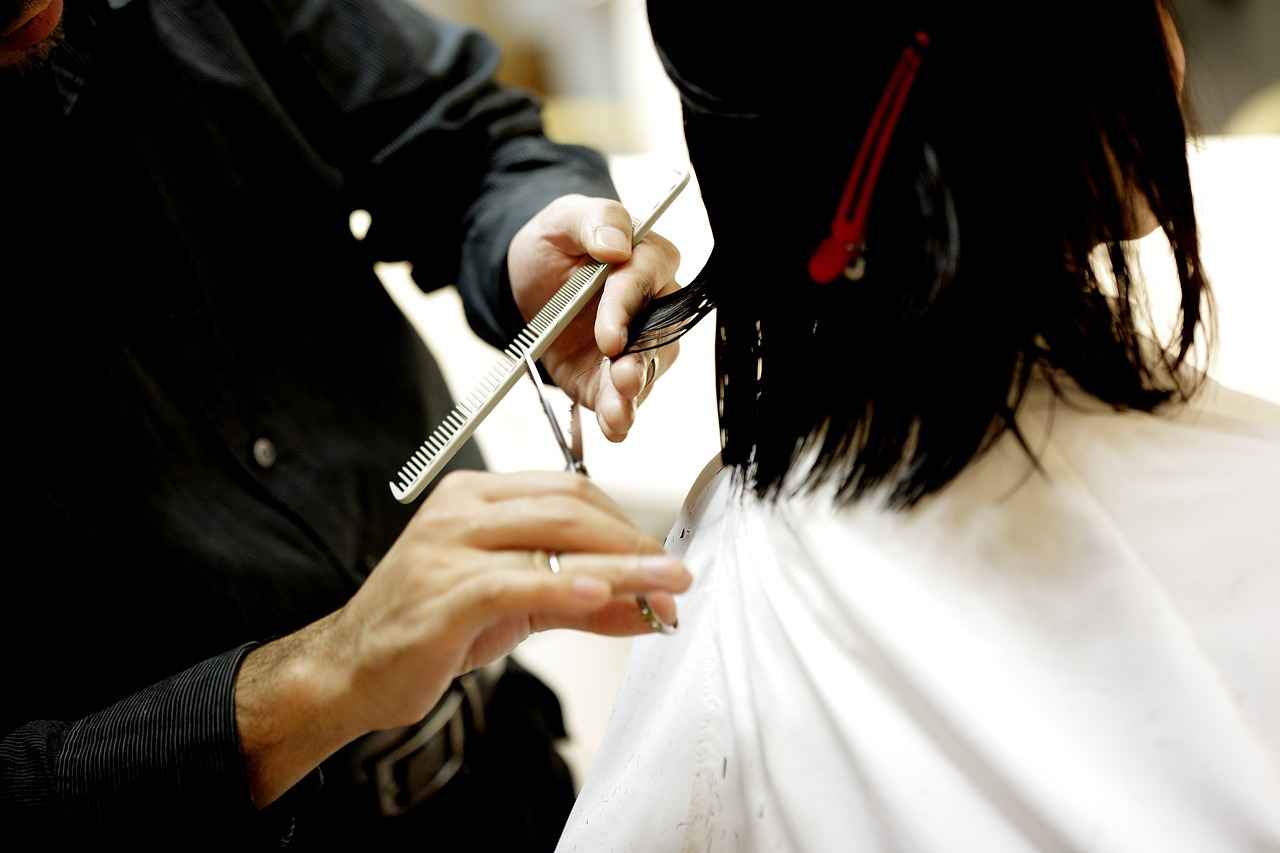This article provides a comprehensive guide for individuals considering traveling to Turkey for a hair transplant, covering essential aspects from planning to post-operative care.
Understanding Hair Transplants
Hair transplants are surgical procedures that restore hair to balding or thinning areas. There are various types and methods available, including Follicular Unit Extraction (FUE) and Follicular Unit Transplantation (FUT). Understanding these options can help you make informed decisions about your treatment.
Why Choose Turkey for Hair Transplants?
Turkey has become a popular destination for hair transplants due to its affordable prices and high-quality medical services. The country is home to numerous accredited clinics and experienced surgeons, making it an attractive option for many international patients.
Researching Clinics and Surgeons
Finding the right clinic and surgeon is crucial for a successful hair transplant. Here are some tips:
- Check the clinic’s accreditations and certifications.
- Read patient reviews and testimonials.
- Inquire about the surgeon’s experience and success rates.
Consultation Process
The consultation process is vital for discussing your goals and expectations. During your initial visit, you can expect a thorough examination and a detailed discussion about the procedure, recovery, and potential outcomes.
Preparing for Your Trip
Proper preparation can enhance your experience and ensure a smooth journey. Here are essential steps:
- Travel Documentation and Visa Requirements: Ensure you have the necessary travel documents and understand the visa requirements for entering Turkey.
- Booking Flights and Accommodation: Look for affordable flights and comfortable accommodation options to save money and enhance your experience.
What to Expect During the Procedure
Knowing what to expect during the hair transplant procedure can alleviate anxiety. Typically, the process involves local anesthesia, extraction of hair follicles, and their implantation into the balding areas.
Post-Operative Care and Recovery
Post-operative care is essential for successful hair growth after a transplant. Follow your surgeon’s instructions closely, including medication schedules and care for the transplanted area.
Cost Considerations and Payment Options
Understanding the costs associated with hair transplants in Turkey is crucial for budgeting. Expect expenses to include the procedure, accommodation, and travel. Many clinics offer flexible payment options to accommodate international patients.
Long-Term Results and Maintenance
After the procedure, maintaining your results is important for long-term satisfaction. Regular follow-ups and proper hair care can significantly impact the success of your transplant.
Conclusion: Making an Informed Decision
In conclusion, planning a trip to Turkey for a hair transplant requires careful consideration and research. By understanding the process, costs, and post-operative care, you can make an informed decision that best suits your needs.

Understanding Hair Transplants
Hair transplants are surgical procedures designed to restore hair to areas experiencing balding or thinning. These procedures involve relocating hair follicles from a dense hair area (often the back of the head) to the balding or thinning areas. This method not only enhances the appearance of hair but also boosts the confidence of individuals seeking to improve their looks.
There are primarily two types of hair transplant methods:
- Follicular Unit Transplantation (FUT): This method involves removing a strip of scalp from the donor area and dissecting it into individual follicular units for transplantation.
- Follicular Unit Extraction (FUE): In this technique, individual hair follicles are extracted directly from the scalp and implanted in the desired areas. This method is less invasive and often results in quicker recovery times.
Understanding these methods can significantly influence your decision-making process. Here are some key factors to consider:
- Desired Results: Assess what kind of look you want to achieve. Different methods may yield different results.
- Recovery Time: FUE typically offers a quicker recovery than FUT, which may require more downtime.
- Cost: The pricing for hair transplants can vary significantly based on the method chosen and the clinic’s reputation.
In conclusion, having a thorough understanding of hair transplants, including their types and techniques, is crucial for anyone considering this life-changing procedure. By being informed, you can make educated decisions that align with your personal goals and expectations.

Why Choose Turkey for Hair Transplants?
In recent years, Turkey has emerged as a leading destination for individuals seeking hair transplant procedures. The combination of affordable prices and high-quality medical services has attracted patients from all over the world. This section delves into the numerous benefits of choosing Turkey for your hair restoration journey.
- Cost-Effectiveness: One of the primary reasons people opt for hair transplants in Turkey is the significantly lower costs compared to Western countries. Patients can save up to 70% on the total procedure, including flights and accommodation.
- Expertise and Technology: Turkey boasts a plethora of clinics that utilize state-of-the-art technology and employ skilled surgeons with extensive experience in hair restoration techniques. Many clinics are internationally accredited, ensuring high standards of care.
- Comprehensive Packages: Many Turkish clinics offer all-inclusive packages that cover everything from airport transfers to post-operative care. This convenience allows patients to focus on their recovery without worrying about logistics.
- Personalized Care: Clinics in Turkey often provide personalized treatment plans tailored to the specific needs of each patient. This individualized approach ensures optimal results and enhances patient satisfaction.
- Tourism Opportunities: Combining a hair transplant with a vacation is an appealing aspect of traveling to Turkey. Patients can explore the rich history, stunning landscapes, and vibrant culture while recovering from their procedure.
In conclusion, choosing Turkey for your hair transplant offers a unique blend of affordability, expertise, and an enriching travel experience. With the right research and preparation, patients can achieve their desired results in a supportive and welcoming environment.

Researching Clinics and Surgeons
When considering a hair transplant in Turkey, finding the right clinic and surgeon is pivotal for achieving the desired results. With numerous options available, it is essential to conduct thorough research to ensure you select a reputable provider. Here are some key tips to help you navigate this process effectively:
- Verify Credentials: Always check the qualifications and certifications of the surgeons. Look for board certifications and specialized training in hair restoration techniques.
- Read Patient Reviews: Online reviews can offer valuable insights into the experiences of previous patients. Check platforms like Google, Trustpilot, and social media to gauge the clinic’s reputation.
- Examine Before-and-After Photos: Reputable clinics often showcase their past work. Review these images critically to assess the quality of their results.
- Consultation Availability: A professional clinic should offer a detailed consultation before the procedure. This is a chance to discuss your goals, ask questions, and understand the techniques they use.
- Inquire About Technology and Techniques: The field of hair transplantation is constantly evolving. Ensure the clinic uses the latest methods, such as FUE (Follicular Unit Extraction) or DHI (Direct Hair Implantation), which are known for their effectiveness.
- Check for Aftercare Services: Post-operative care is crucial for successful recovery. Ensure the clinic provides adequate aftercare support, including follow-up appointments and guidance on recovery.
By following these steps, you can significantly increase your chances of finding a qualified clinic and surgeon who will meet your needs. Remember, investing time in research is essential for a successful hair transplant experience.
Checking Credentials and Reviews
When considering a hair transplant in Turkey, it is vital to conduct thorough research on potential clinics and surgeons. This process begins with verifying the credentials of the medical professionals involved in your care. Look for surgeons who are board-certified and have specialized training in hair restoration procedures. Additionally, it is beneficial to check their affiliations with reputable medical organizations, as these can be indicators of their commitment to maintaining high standards in their practice.
Moreover, patient reviews play a crucial role in your decision-making process. Reading testimonials from previous clients can provide insight into the quality of care, the professionalism of the staff, and the overall patient experience. Look for reviews on independent platforms, as these are often more reliable than those found on clinic websites. Pay attention to the before-and-after photos shared by patients, as they can illustrate the effectiveness of the procedures offered by the clinic.
It is also wise to seek recommendations from friends or family who may have undergone similar procedures. Personal experiences can offer valuable perspectives and help you narrow down your options. Additionally, consider joining online forums or social media groups dedicated to hair restoration, where you can ask questions and gather information from others who have traveled to Turkey for similar treatments.
In summary, taking the time to check credentials and read reviews is essential for ensuring you choose a reputable provider for your hair transplant. This diligence will not only enhance your chances of achieving satisfactory results but also contribute to a positive overall experience during your journey.
Consultation Process
The is a crucial step in your journey towards a successful hair transplant. It serves as the foundation for understanding your individual needs and setting realistic goals. During your initial consultation, you will have the opportunity to discuss your specific concerns, expectations, and desired outcomes with the medical team.
Here is what you can typically expect during this important meeting:
- Personalized Assessment: The consultation will begin with a thorough evaluation of your hair loss pattern, scalp condition, and overall health. This assessment is vital for determining the most suitable treatment plan tailored to your needs.
- Discussion of Goals: You will be encouraged to express your goals regarding hair restoration. Whether you aim for a fuller hairline or increased volume, articulating your expectations helps the surgeon align the procedure with your vision.
- Education on Techniques: The clinic will provide information on various hair transplant techniques, such as FUE (Follicular Unit Extraction) and FUT (Follicular Unit Transplantation). Understanding these methods will empower you to make informed decisions.
- Realistic Outcomes: It’s essential to have a clear understanding of what results you can expect. The medical team will share before-and-after photos of previous patients and discuss the timeline for hair growth post-surgery.
- Addressing Concerns: This is your chance to ask any questions or express concerns you may have about the procedure, recovery, and potential side effects. A reputable clinic will ensure that you feel comfortable and informed before proceeding.
- Cost and Payment Options: The consultation will also cover the financial aspects of the procedure, including a detailed breakdown of costs and available payment plans.
In conclusion, the consultation process is not just a formality; it is an essential part of ensuring that your hair transplant journey is aligned with your personal goals. Taking the time to engage in this process will help you achieve the best possible outcomes.

Preparing for Your Trip
Embarking on a journey to Turkey for a hair transplant can be an exciting yet daunting experience. Proper preparation not only enhances your overall experience but also ensures a smooth and hassle-free journey. Here are some essential steps you should take before you travel:
- Research and Plan Ahead: Start by gathering information about the clinics and surgeons you are considering. Look for reviews and testimonials from previous patients to gauge the quality of care.
- Understand the Procedure: Familiarize yourself with the hair transplant techniques available, such as FUE (Follicular Unit Extraction) or FUT (Follicular Unit Transplantation). Knowing what to expect can alleviate anxiety.
- Travel Documentation: Ensure you have a valid passport and check if you need a visa to enter Turkey. It’s advisable to keep copies of important documents, including your medical records and travel itinerary.
- Book Your Flights: Look for affordable flights to Turkey. Booking in advance can often lead to better deals. Consider the timing of your surgery when choosing your travel dates.
- Arrange Accommodation: Research hotels or accommodations near your chosen clinic. Proximity can minimize travel stress on the day of your procedure.
- Prepare for the Climate: Turkey’s weather can vary significantly depending on the season. Pack appropriate clothing and essentials to ensure comfort during your stay.
- Health Insurance: Check if your health insurance covers international procedures. If not, consider travel insurance that includes medical coverage for your trip.
- Plan for Post-Operative Care: Understand the recovery process and have a plan in place for post-operative care. This includes arranging transportation and any necessary follow-up appointments.
By taking these steps, you can ensure that your trip to Turkey for a hair transplant is well-organized and focused on achieving the best possible results. Remember, thorough preparation is key to a successful experience.
Travel Documentation and Visa Requirements
When planning a trip to Turkey, especially for a hair transplant, it is essential to understand the travel documentation and visa requirements that apply to international travelers. This section aims to provide you with comprehensive details on what you need to enter Turkey smoothly.
- Passport Validity: Ensure that your passport is valid for at least six months beyond your planned departure date from Turkey. This is a common requirement for many countries.
- Visa Types: Depending on your nationality, you may need a visa to enter Turkey. Many travelers can apply for an e-Visa online, which is a quick and convenient option. Check the official Turkish e-Visa website for eligibility.
- Visa Application Process: If you are not eligible for an e-Visa, you will need to apply for a visa at a Turkish embassy or consulate in your country. Prepare necessary documents such as your passport, travel itinerary, and proof of accommodation.
- Travel Insurance: It is highly recommended to have travel insurance that covers medical expenses and unexpected trip cancellations. This ensures that you are protected during your stay.
- Health Regulations: Stay updated on any health regulations or requirements, such as vaccinations or COVID-19 testing, that may be in place at the time of your travel.
In summary, being well-informed about the necessary travel documents and visa requirements is crucial for a hassle-free journey to Turkey. Ensure that you check the latest regulations and prepare all necessary documentation in advance to avoid any last-minute issues.
Booking Flights and Accommodation
Traveling to Turkey for a hair transplant can be an exciting yet daunting experience. One of the key aspects of planning your trip is . Here are some practical tips to help you secure the best deals and make your stay comfortable:
- Start Early: Begin your search for flights and hotels well in advance. This can significantly increase your chances of finding affordable options.
- Use Flight Comparison Websites: Websites like Skyscanner and Kayak allow you to compare prices across various airlines, ensuring you get the best deal.
- Be Flexible with Dates: If your schedule allows, try to be flexible with your travel dates. Flying mid-week or during off-peak seasons can often lead to lower fares.
- Consider Nearby Airports: Sometimes, flying into a nearby airport rather than a major city can save you money. Research the options available and their proximity to your clinic.
- Book Accommodation in Advance: Secure your accommodation ahead of time to avoid last-minute price hikes. Look for hotels or hostels that offer special deals for medical tourists.
- Read Reviews: Check reviews on platforms like TripAdvisor to find reliable and comfortable places to stay. Pay attention to comments regarding cleanliness and proximity to the clinic.
- Look for Package Deals: Some travel agencies offer package deals that include flights and accommodation. This can sometimes be more economical and convenient.
By following these tips, you can find affordable flights and comfortable accommodation that will enhance your overall experience in Turkey. Remember, a well-planned trip not only saves you money but also sets the stage for a successful hair transplant journey.

What to Expect During the Procedure
Understanding the hair transplant procedure can significantly reduce anxiety for patients preparing for surgery. On the day of the procedure, patients can expect a well-organized experience that prioritizes comfort and care.
Initially, upon arrival at the clinic, patients will undergo a pre-operative assessment. This includes a review of medical history and a discussion about the desired outcomes. The surgeon will explain the specific technique to be used, whether it’s FUE (Follicular Unit Extraction) or FUT (Follicular Unit Transplantation), ensuring that all questions are answered to the patient’s satisfaction.
Once the assessment is complete, the patient will be taken to the surgical room, where they will be made comfortable. Local anesthesia is administered to minimize discomfort during the procedure. Patients may feel a slight pinch, but this sensation quickly subsides.
During the procedure, patients can expect to spend several hours in the clinic. The surgeon will carefully extract hair follicles from the donor area, which is typically the back of the head, and then implant them into the recipient area. This process is meticulous and requires a steady hand, which is why choosing an experienced surgeon is critical.
Throughout the procedure, patients can listen to music or watch television to help pass the time. Many clinics offer a relaxing environment to enhance comfort. After the implantation is complete, patients will receive aftercare instructions and may be advised to take some time to rest before resuming normal activities.
In conclusion, understanding the steps involved in a hair transplant can help ease apprehension. Knowing what to expect on the day of surgery empowers patients, making the experience more manageable and less stressful.

Post-Operative Care and Recovery
Post-operative care is a critical component in ensuring the success of your hair transplant procedure. Proper recovery practices can significantly influence the final results, and understanding what to expect during the healing process is essential for every patient.
In the days following your hair transplant, you may experience some swelling and discomfort. This is completely normal and usually subsides within a few days. To manage any pain, your surgeon will likely prescribe medication. It’s important to follow their instructions carefully for optimal recovery.
Here are some essential recovery tips:
- Avoid touching or scratching the scalp: This can displace the newly transplanted hair follicles and hinder their growth.
- Keep your head elevated: Sleeping with your head raised can minimize swelling. Consider using extra pillows for support.
- Follow post-operative washing instructions: Your surgeon will provide specific guidelines on how and when to wash your hair. Adhering to these instructions is vital.
- Avoid strenuous activities: For at least a week post-surgery, refrain from heavy exercise or activities that may cause sweating.
- Stay hydrated and maintain a balanced diet: Proper nutrition aids in healing and supports hair growth.
What to expect in the weeks following the procedure:
Typically, you will notice shedding of the transplanted hair within a few weeks. This is a normal part of the hair growth cycle and should not cause alarm. New hair growth usually begins around three to four months post-surgery, and significant improvements will be visible within six to twelve months.
In summary, post-operative care is vital for achieving the desired outcome from your hair transplant. By following your surgeon’s guidelines and taking proactive steps in your recovery, you can enhance your chances of successful hair growth.

Cost Considerations and Payment Options
When planning for a hair transplant in Turkey, it is essential to have a clear understanding of the costs involved to effectively budget your trip. This section will break down the potential expenses and explore various payment options available to patients.
- Initial Consultation Fees: Many clinics in Turkey offer free consultations, but some may charge a nominal fee. This initial meeting is crucial for assessing your hair loss and discussing potential treatment plans.
- Procedure Costs: The cost of hair transplants can vary significantly depending on the clinic’s reputation, the surgeon’s experience, and the technique used. On average, prices range from $1,500 to $3,500, which is considerably lower than in many Western countries.
- Additional Expenses: Consider other costs such as travel, accommodation, and meals. Budgeting an extra $500 to $1,000 for these expenses is advisable, ensuring a comfortable stay during your recovery.
- Post-Operative Care: Follow-up visits may be included in the initial fee, but some clinics charge separately for post-operative consultations and medications, which can add to the overall cost.
To facilitate your payment, many clinics offer flexible payment plans and accept various methods, including:
- Credit Cards: Most clinics accept major credit cards, making it convenient for international patients.
- Bank Transfers: Some patients prefer to pay via bank transfer, which can often be arranged prior to the procedure.
- Financing Options: Certain clinics may provide financing options that allow you to pay in installments, easing the financial burden.
In summary, understanding the costs associated with hair transplants in Turkey is vital for effective budgeting. By considering all potential expenses and available payment options, you can ensure a smooth and financially manageable experience.

Long-Term Results and Maintenance
After undergoing a hair transplant, maintaining your results is crucial for long-term satisfaction and confidence. The journey does not end with the procedure; instead, it marks the beginning of a new chapter in your hair care routine. This section will guide you on how to effectively care for your hair post-transplant and what to expect regarding growth over time.
Firstly, it is essential to follow the post-operative care instructions provided by your surgeon. These may include:
- Avoiding strenuous activities: For at least a week, refrain from heavy exercise to ensure proper healing.
- Gentle washing: Use a mild shampoo and avoid vigorous scrubbing of the scalp during the initial healing phase.
- Protecting your scalp: Wear a loose-fitting hat when exposed to direct sunlight to prevent damage to the newly transplanted hair follicles.
In the weeks following your procedure, you may notice shedding of the transplanted hair. This is a normal part of the hair growth cycle, and it typically occurs around two to three weeks post-surgery. Don’t be alarmed; the hair follicles are still intact, and new growth will begin to emerge within a few months.
As time progresses, you can expect to see significant hair growth around the 3 to 6-month mark. By the end of the first year, most patients experience a fuller head of hair. To maintain these results, consider the following:
- Regular follow-ups: Schedule check-ups with your surgeon to monitor progress and address any concerns.
- Healthy lifestyle choices: Maintain a balanced diet rich in vitamins and minerals that promote hair health.
- Avoiding harmful products: Stay away from harsh chemicals and styling products that can damage your hair.
In conclusion, proper care and maintenance after a hair transplant are vital for achieving and sustaining the desired results. By adhering to your surgeon’s advice and adopting a healthy hair care routine, you can enjoy the benefits of your investment for years to come.

Conclusion: Making an Informed Decision
In planning a trip to Turkey for a hair transplant, it is essential to approach the process with careful consideration and thorough research. This journey involves multiple stages, from selecting the right clinic to understanding the post-operative care required for optimal results. Below, we summarize the key points to help you make an informed decision.
- Research Clinics: Begin by investigating various clinics in Turkey. Look for those with a strong reputation, verified credentials, and positive patient reviews.
- Consultation: Schedule consultations to discuss your goals and expectations. This is a crucial step to ensure that both you and your surgeon are aligned on the desired outcomes.
- Travel Arrangements: Plan your travel carefully, including booking flights and accommodations. Consider proximity to the clinic and the amenities offered.
- Understand Costs: Familiarize yourself with the costs associated with the procedure, including hidden fees. Many clinics offer packages that can save money.
- Post-Operative Care: Prepare for your recovery by understanding the aftercare instructions provided by your surgeon. Adhering to these guidelines is vital for successful hair growth.
By focusing on these aspects, you can significantly enhance your experience and outcomes. Remember, making an informed decision is not just about the financial investment but also about your health and satisfaction in the long run.
In conclusion, taking the time to research and plan your trip to Turkey for a hair transplant will greatly improve your chances of a successful procedure. Ensure that you are well-prepared and fully informed to make the best choices for your hair restoration journey.
Frequently Asked Questions
- What is a hair transplant?
A hair transplant is a surgical procedure that involves moving hair follicles from a donor site to a balding or thinning area on the scalp. It’s a popular solution for those looking to restore their hairline and regain confidence.
- Why is Turkey a popular destination for hair transplants?
Turkey has become a hotspot for hair transplants due to its affordable prices, high-quality medical facilities, and skilled surgeons. Many international patients choose Turkey to save on costs without compromising on care.
- How do I choose the right clinic and surgeon?
Choosing the right clinic involves researching credentials, reading patient reviews, and checking before-and-after photos. It’s essential to ensure that the clinic meets international health standards and has experienced surgeons.
- What should I prepare before my trip?
Before traveling to Turkey, ensure you have your travel documents in order, including a valid passport and visa if required. Additionally, book your flights and accommodation in advance for a smoother experience.
- What can I expect during the procedure?
During the hair transplant procedure, you will be given local anesthesia. The process typically takes several hours, and you may experience minimal discomfort. The clinic staff will guide you through each step to keep you informed and comfortable.
- How should I care for my hair after the transplant?
Post-operative care is crucial for successful hair growth. Follow your surgeon’s instructions, which may include avoiding strenuous activities, using prescribed medications, and keeping the scalp clean and moisturized.
- What are the cost considerations for a hair transplant in Turkey?
The cost of hair transplants in Turkey can vary widely based on the clinic, the surgeon’s experience, and the technique used. It’s important to get a detailed breakdown of all potential expenses and inquire about payment options before proceeding.














